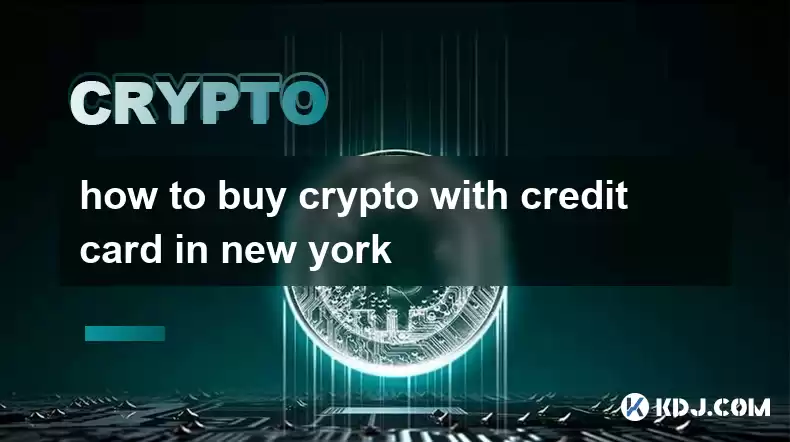-
 Bitcoin
Bitcoin $117800
0.49% -
 Ethereum
Ethereum $4432
0.55% -
 XRP
XRP $3.106
1.07% -
 Tether USDt
Tether USDt $1.001
0.01% -
 BNB
BNB $835.8
1.74% -
 Solana
Solana $189.1
2.72% -
 USDC
USDC $0.9999
-0.01% -
 Dogecoin
Dogecoin $0.2302
3.65% -
 TRON
TRON $0.3485
-0.69% -
 Cardano
Cardano $0.9212
-0.91% -
 Hyperliquid
Hyperliquid $46.97
1.45% -
 Chainlink
Chainlink $22.77
5.61% -
 Stellar
Stellar $0.4284
0.82% -
 Sui
Sui $3.766
2.82% -
 Bitcoin Cash
Bitcoin Cash $583.5
-0.82% -
 Ethena USDe
Ethena USDe $1.001
0.03% -
 Hedera
Hedera $0.2512
2.78% -
 Avalanche
Avalanche $24.18
2.27% -
 Litecoin
Litecoin $120.2
2.10% -
 Toncoin
Toncoin $3.450
1.96% -
 UNUS SED LEO
UNUS SED LEO $9.412
-0.92% -
 Shiba Inu
Shiba Inu $0.00001298
2.35% -
 Uniswap
Uniswap $10.99
3.75% -
 Polkadot
Polkadot $3.962
3.09% -
 Dai
Dai $1.000
0.00% -
 Bitget Token
Bitget Token $4.643
1.38% -
 Cronos
Cronos $0.1511
-0.08% -
 Ethena
Ethena $0.7246
3.18% -
 Monero
Monero $254.9
7.90% -
 Pepe
Pepe $0.00001100
3.32%
how to buy crypto with credit card in new york
Purchasing cryptocurrencies with a credit card in New York is legal and straightforward, offering access to various crypto options but involving potential risks such as high fees and market volatility.
Feb 03, 2025 at 07:30 am

How to Buy Crypto with a Credit Card in New York: A Comprehensive Guide
Key Points:
- Choosing a reputable cryptocurrency exchange
- Verifying your identity and funding your account
- Selecting the appropriate cryptocurrency
- Initiating the credit card transaction
- Understanding fees and limitations
- Evaluating security measures
- Exploring additional options for purchasing crypto
Step 1: Selecting a Cryptocurrency Exchange
- Coinbase: One of the most well-known and secure platforms offering crypto-to-credit card transactions.
- Binance.US: A U.S.-based affiliate of Binance with a user-friendly interface and competitive fees.
- Kraken: A veteran exchange known for its advanced trading features and strong customer support.
- Gemini: A regulated exchange providing a wide range of crypto options and enhanced security protocols.
- Crypto.com: A growing exchange with low fees and high-interest earning accounts.
Step 2: Verifying Your Identity and Funding Your Account
- Provide personal information, such as name, address, and Social Security number.
- Upload a government-issued photo ID and proof of residency.
- Link your credit card or bank account to the exchange.
Step 3: Selecting the Appropriate Cryptocurrency
- Bitcoin (BTC): The original and most widely adopted cryptocurrency.
- Ethereum (ETH): The second-largest cryptocurrency by market cap, known for its decentralized finance (DeFi) applications.
- Stablecoins (e.g., USDC, USDT): Cryptocurrencies pegged to a fiat currency, providing stability and reducing price fluctuations.
- Other Altcoins: Numerous other cryptocurrencies available for purchase, including Dogecoin, Solana, and Cardano.
Step 4: Initiating the Credit Card Transaction
- Navigate to the "Buy Crypto" page on the exchange platform.
- Choose the desired cryptocurrency and enter the amount you wish to purchase.
- Select "Credit Card" as the payment method.
- Review the fees and transaction details.
- Confirm the purchase and wait for the funds to be deposited into your account.
Step 5: Understanding Fees and Limitations
- Transaction Fees: Exchanges typically charge a fee for each credit card purchase, which can vary depending on the platform, cryptocurrency, and purchase amount.
- Credit Card Fees: Credit card issuers may charge additional fees for cash advances, balance transfers, or foreign transaction fees.
- Purchase Limits: Exchanges may impose limits on the amount of crypto you can purchase with a credit card, which can vary based on your account level and purchase history.
Step 6: Evaluating Security Measures
- Two-Factor Authentication (2FA): Use 2FA to add an extra layer of security to your account by requiring a unique code sent to your phone or email for logins and transactions.
- SSL Certificates: Ensure that the exchange website uses SSL certificates to encrypt data and protect against data breaches.
- Anti-Money Laundering (AML) and Know-Your-Customer (KYC) Compliance: Legitimate exchanges comply with AML and KYC regulations to prevent illicit activities.
Step 7: Exploring Additional Options for Purchasing Crypto
- Peer-to-Peer Exchanges: Platforms like LocalBitcoins and Paxful connect buyers and sellers directly, offering more flexibility but potentially involving higher risks.
- Crypto ATMs: Machines installed in public locations allow users to purchase crypto with cash, but often come with high fees and limited options.
- PayPal: Some merchants, such as PayPal, allow you to purchase crypto directly using your PayPal balance.
FAQs
Q: Is it legal to buy crypto with a credit card in New York?
A: Yes, it is legal to purchase cryptocurrencies using a credit card in New York as long as you use a reputable exchange that complies with applicable laws and regulations.
Q: What are the risks of buying crypto with a credit card?
A: Potential risks include high transaction fees, credit card debt if you fail to pay off your balance, and market volatility that could lead to financial losses.
Q: Can I use a debit card to buy crypto in New York?
A: Yes, many exchanges accept debit card purchases for cryptocurrencies, but fees may vary and some limitations may apply.
Q: What is the best cryptocurrency to buy with a credit card?
A: The best cryptocurrency for you will depend on your investment goals and risk tolerance. Consider factors such as market capitalization, project fundamentals, and price volatility before making a decision.
Q: What happens if I make a crypto purchase with a credit card and the price of the crypto falls?
A: If the price of the cryptocurrency falls after you make a purchase, you will incur a financial loss. It's important to research and invest wisely, understanding the risks involved.
Disclaimer:info@kdj.com
The information provided is not trading advice. kdj.com does not assume any responsibility for any investments made based on the information provided in this article. Cryptocurrencies are highly volatile and it is highly recommended that you invest with caution after thorough research!
If you believe that the content used on this website infringes your copyright, please contact us immediately (info@kdj.com) and we will delete it promptly.
- Kazakhstan's Crypto Leap: Bitcoin ETF and Central Asia's Digital Finance Future
- 2025-08-13 12:45:19
- BlockDAG Presale Blazes Past $371M: Fundraising Frenzy Fuels Crypto Sensation
- 2025-08-13 13:05:21
- Meme Coins: Chasing the 2025 Surge – Which Will Moonshot?
- 2025-08-13 10:25:23
- Bitcoin's Wild Ride: Rally, Pullback, and What's Next
- 2025-08-13 10:25:23
- Bitcoin, Bitmax, and Institutional Demand: A New Era of Crypto Investment
- 2025-08-13 10:45:12
- Solana, ROAM, and Airdrops: What's the Buzz in 2025?
- 2025-08-13 11:35:13
Related knowledge

What is Ethereum’s Slashing mechanism and how to punish malicious behavior?
Feb 20,2025 at 03:08am
Key PointsOverview of slashingDifferent types of slashing in EthereumIncentives and consequences of slashingIdentifying and reporting slashed validato...

What is the verifier node of Ethereum and how to become a verifier?
Feb 19,2025 at 06:00pm
The Verifier Node of Ethereum: A Comprehensive GuideKey Points:What is a Verifier Node?How to Become a Verifier NodeResponsibilities and Rewards of a ...

What is Ethereum’s staking, and how to participate and earn money?
Feb 19,2025 at 04:37pm
Key Points:Understanding Ethereum's Staking MechanismSteps to Participate in StakingBenefits and Rewards of StakingSecurity and Risk ConsiderationsTec...

What is Ethereum’s DAO (Decentralized Autonomous Organization) and how does it work?
Feb 20,2025 at 03:12am
Key PointsDefinition and Structure of a DAOGovernance and Decision-Making in DAOsBenefits and Use Cases of DAOsChallenges and Limitations of DAOsWhat ...

What is Ethereum's multi-signature wallet and how to improve security?
Feb 20,2025 at 02:18pm
Key Points:Understanding the Concept of a Multi-Signature WalletBenefits and Drawbacks of Multisig WalletsRequirements for Setting Up a Multisig Walle...

What is Ethereum's oracle and how to provide data for smart contracts?
Feb 21,2025 at 01:30am
Key Points:Understanding the concept of oracles in EthereumExploring different types of oraclesDetailed guide on how to provide data for smart contrac...

What is Ethereum’s Slashing mechanism and how to punish malicious behavior?
Feb 20,2025 at 03:08am
Key PointsOverview of slashingDifferent types of slashing in EthereumIncentives and consequences of slashingIdentifying and reporting slashed validato...

What is the verifier node of Ethereum and how to become a verifier?
Feb 19,2025 at 06:00pm
The Verifier Node of Ethereum: A Comprehensive GuideKey Points:What is a Verifier Node?How to Become a Verifier NodeResponsibilities and Rewards of a ...

What is Ethereum’s staking, and how to participate and earn money?
Feb 19,2025 at 04:37pm
Key Points:Understanding Ethereum's Staking MechanismSteps to Participate in StakingBenefits and Rewards of StakingSecurity and Risk ConsiderationsTec...

What is Ethereum’s DAO (Decentralized Autonomous Organization) and how does it work?
Feb 20,2025 at 03:12am
Key PointsDefinition and Structure of a DAOGovernance and Decision-Making in DAOsBenefits and Use Cases of DAOsChallenges and Limitations of DAOsWhat ...

What is Ethereum's multi-signature wallet and how to improve security?
Feb 20,2025 at 02:18pm
Key Points:Understanding the Concept of a Multi-Signature WalletBenefits and Drawbacks of Multisig WalletsRequirements for Setting Up a Multisig Walle...

What is Ethereum's oracle and how to provide data for smart contracts?
Feb 21,2025 at 01:30am
Key Points:Understanding the concept of oracles in EthereumExploring different types of oraclesDetailed guide on how to provide data for smart contrac...
See all articles

























































































